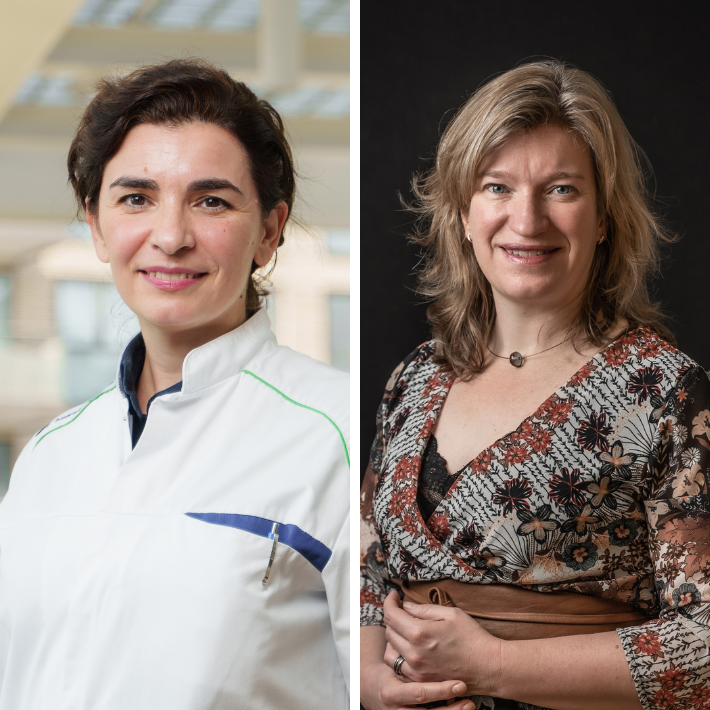Two endowed professors appointed: therapeutic innovations for Parkinson’s disease and promote physical activity children
Left: Fiorella Contarino (photo: HagaZiekenhuis), right: Sanne de Vries (photo: Medical Delta)
&width=710&height=710)
Therapeutic innovations for Parkinson’s disease
Fiorella Contarino specialises in treating Parkinson’s disease using Deep Brain Stimulation (DBS), a technique that sends electrical impulses to the brain. “For patients with movement disorders like Parkinson’s, medication often isn’t enough,” Contarino explains. “I first encountered DBS as a medical student in Rome. I saw how it could almost completely suppress the involuntary movements of a Parkinson’s patient. That left a deep impression.”
Since then, Contarino has focused on this treatment. In addition to helping patients at the HagaZiekenhuis, she spends much of her time researching how to improve the method. “The brain is incredibly complex. There’s still so much to discover. Thanks to technological developments, we have more and more options. It’s our job to keep improving outcomes and to explore and implement new technologies.”
Contarino stresses the importance of the patient’s role in her work. “Care and research go hand in hand. By seeing patients every day, you know who you’re doing the research for. And research helps us provide better care. Our patients understand how important research is, because there’s no cure yet. In my experience, many are eager to take part in studies—maybe not for themselves, but to help future patients.”
As endowed professor of neurology, Contarino also teaches fellow professionals. She’s an active member of the international community of doctors specialising in DBS. Every year, doctors from around the world come to the HagaZiekenhuis to learn about the technique. She also supervises PhD candidates.
“None of this would be possible without my colleagues from the DBS team at the HagaZiekenhuis and the LUMC. We challenge each other and share the drive to keep improving—providing the best care today, doing research to improve tomorrow’s care, and training the doctors of the future.”
The chair is initiated by the HagaZiekenhuis and based at the LUMC/Leiden University.
Youth physical activity as a foundation for a healthy life
Large-scale research involving nearly 230,000 primary school children shows that one in five lacks sufficient motor skills. Nearly half don’t meet physical activity guidelines. This lack of movement has serious consequences: increased risk of obesity, psychosocial issues, lower academic performance, and reduced social development. “It won’t fix itself,” Sanne de Vries warns. “We live in a society where sitting has become the norm. To reverse this trend, we need more knowledge and innovation to help young people develop and maintain an active lifestyle.”
The solution: research, collaboration and practical interventions
De Vries focuses on developing integrated strategies and interventions through collaboration between science, practice and society. A concrete example is the MQ Scan, a motor skills test now used annually in over 1,100 Dutch primary schools. It provides insight into motor skill development and helps guide targeted support, allowing children to get help earlier and more effectively.
Physical inactivity is a ‘wicked problem’ influenced by many factors and stakeholders. By working with children, young people, parents, schools, municipalities and professionals to co-create and test interventions, De Vries aims to improve population health and reduce health inequalities.
“My mission is to support children and young people in all stages of their development in building an active lifestyle. Only by working together—with parents, schools, professionals and the youth themselves—we can build a healthier generation,” says De Vries.
She combines this role with her current position as Professor of Healthy Lifestyle in an Enabling Environment at The Hague University of Applied Sciences. The chair is initiated by The Hague University of Applied Sciences and based at LUMC/Leiden University. De Vries is also closely involved with the Health Campus in The Hague, where LUMC works with various partners based on three principles: reducing health inequalities, sustainable healthcare, and a broad view of health.
